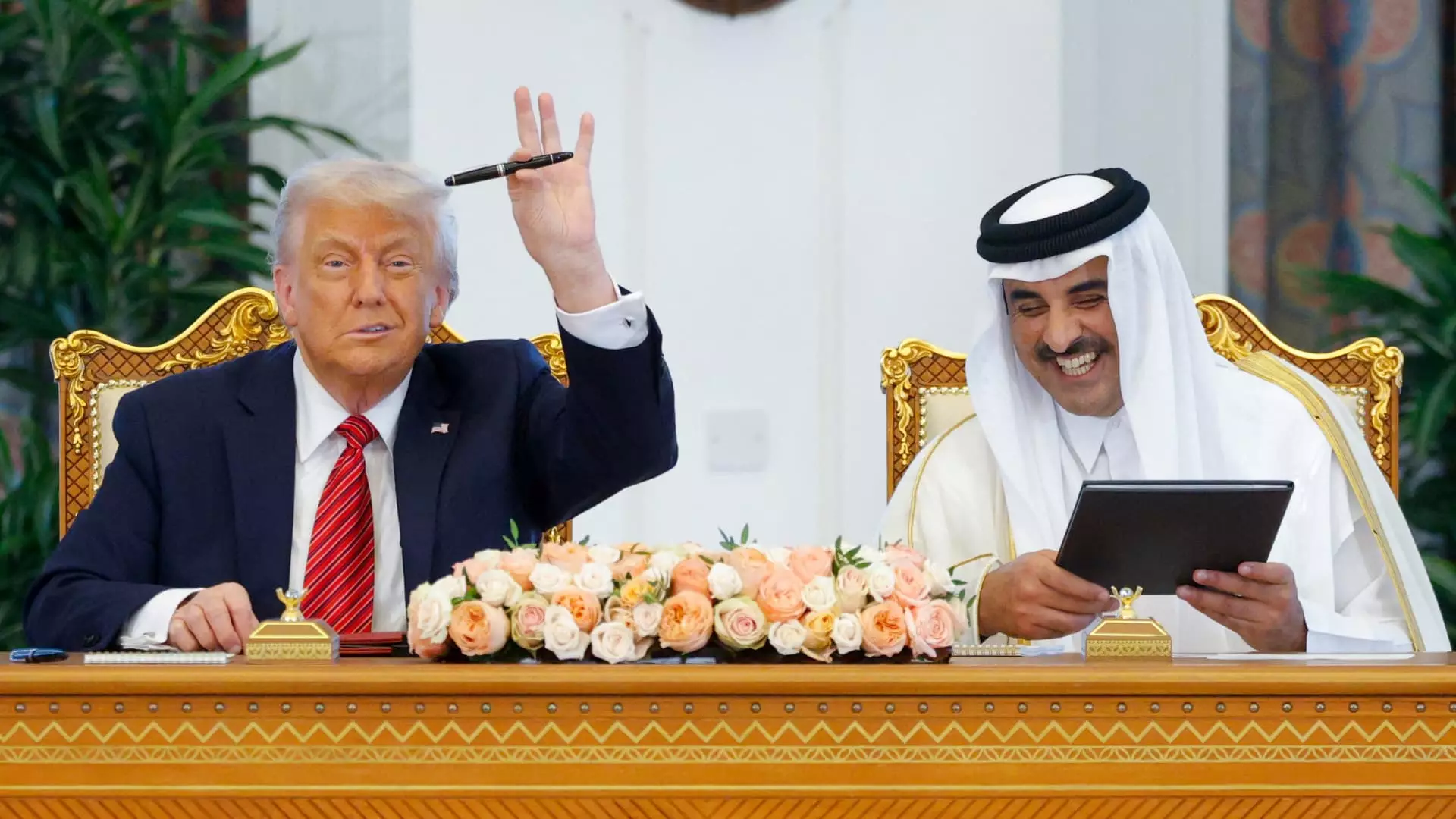In a world increasingly wary of the subtleties and underlying motives in international relations, Qatar’s recent offer of a $400 million Boeing 747 to the U.S. presidency stands as a glaring example of the ambiguous line between diplomacy and financial influence. Sheikh Mohammed bin Abdulrahman al-Thani, Qatar’s prime minister, insists this gesture is merely an embodiment of the longstanding institutional relationship between the United States and his small but wealthy nation. However, the implications of such a proposition demand a more nuanced examination than the simplistic “win-win” exchange al-Thani suggests.
Al-Thani’s assertion that the plane was about mutual cooperation rather than political favor can be received skeptically. Is this merely a conventional diplomatic safeguard or a blatant attempt to buy influence within the Trump administration? Throughout history, the art of diplomacy has become increasingly transactional, with nations offering significant gifts to sway political allegiances or secure favorable policies. The core of this controversy rumbles under the banner of ethics and scrutiny, casting a shadow over Qatar’s motives.
The American Response: A Political Maelstrom
The immediate backlash from U.S. politicians, particularly Democrats, underlines a growing concern about the integrity of political offices and the pervasive influence of foreign powers. The Foreign Emoluments Clause of the Constitution presents a formidable barrier designed to prevent corruption and the erosion of political ethics. With accusations that the proposed jet could be a conduit for corruption, lawmakers have rightfully raised alarms over any potential breaches of constitutional norms.
As Rep. Jamie Raskin and Senator Chris Murphy have highlighted, this situation encapsulates a broader problem endemic to the current political landscape—an administration that may prioritize personal gain over the public good. The transfer of such a lavish gift not only raises eyebrows but also elicits fears that the office of the presidency may be misused as a personal treasury, undermining democracy and fidelity to the Constitution.
Global Perspectives on Gifts: A Double-Edged Sword
Gifts exchanged between nations can bolster relationships, yet they are also fraught with peril. Al-Thani’s invocation of historical precedent—that other nations have lavished gifts upon the U.S.—fails to acknowledge the changed atmosphere surrounding such gestures today. Transparency is paramount, and public trust is increasingly fragile in an era of manifold populist movements and anti-establishment sentiments. The political climate necessitates a reassessment of what is deemed acceptable between allies to prevent the normalization of backdoor dealings cloaked in the guise of mutual benefit.
The denial of any under-the-table dealings creates a convenient narrative, but skepticism is warranted. In diplomatic circles, the appearance of propriety can be as critical as actual compliance with the law. Qatar’s repetitively facing accusations of attempting to buy goodwill—whether justly or unjustly—places it under a magnifying glass, where every step is scrutinized and debated.
The Larger Implications of Friendship and Security
The relationship between Qatar and the U.S. has its roots in shared military and economic interests, particularly in the Middle East. Qatar plays a pivotal role in various American strategic endeavors in the region, and any perceived breach of ethical standards can destabilize this collaboration. But transparency must reign supreme; national security should never be compromised by questionable transactions. Al-Thani can cite historical occurrences of gifting, but if the bedrock of relations rests on questionable foundations, what future awaits such partnerships?
The implications of this controversy reach far beyond the airframe of a Boeing 747. We must grapple with the consequences of what enabling such practices could entail for international relations and the sanctity of governance. Qatar’s overture may appear diplomatically innocuous in theory, but it could inadvertently reinforce a troubling precedent: that lavish expensive gifts can influence the highest echelons of power, eroding public trust further while endangering the principles of accountability that lie at the heart of democracy.

Leave a Reply